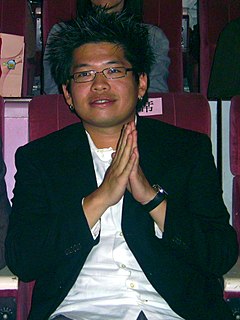A Quote by Jeffrey Zeldman
Web design is the creation of digital environments that facilitate and encourage human activity; reflect or adapt to individual voices and content; and change gracefully over time while always retaining their identity.
Related Quotes
The individuals inside are frequently fighting that their individual voices be heard, while the walls of the place, which are the mask, and the perception, are reluctant to give over to the voices of the individuals. Those in the margins are always trying to get to the center, and those at the center, frequently in the name of tradition, are trying to keep the margins at a distance. Part of the identity of a place is the tension between those in the margins, and those in the center, and they all live behind the walls which wear the tradition.
I came down successfully through Picasso and Braque, down through Pollock, I guess, but I began to stop at Franz Kline and the Abstractionists. I like their design, brilliant design, marvelous color layers. But I don't find any human content there. I'm from an old school, and painting has to have human content for me.


































